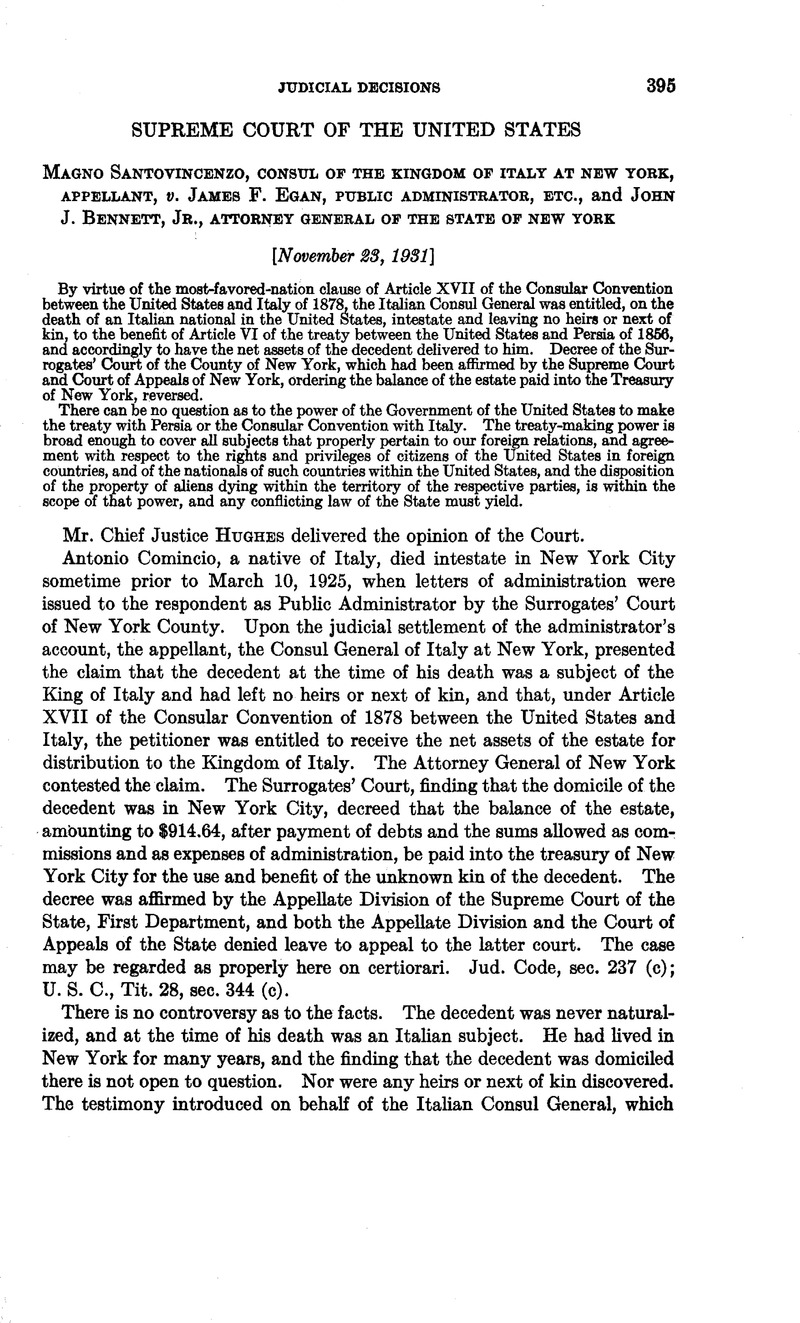No CrossRef data available.
Article contents
Magno Santovincenzo, Consul of the Kingdom of Italy at New York, Appellant, v. James F. Egan, Public Administrator, etc., and John J. Bennett, Jr., Attorney General of the State of New York
Published online by Cambridge University Press: 12 April 2017
Abstract

- Type
- Judicial Decisions Involving Questions of International Law
- Information
- Copyright
- Copyright © American Society of International Law 1932
References
1 “Article V. All suits and disputes arising in Persia between Persian subjects and citizens of the United States, shall be carried before the Persian tribunal to which such matters are usually referred at the place where a consul or agent of the United States may reside, and shall be discussed, and decided according to equity in the presence of an employe of the consul or agent of the United States.
“All suits and disputes which may arise in the empire of Persia between citizens of the United States, shall be referred entirely for trial and for adjudication to the consul or agent of the United States residing in the province wherein such suits and disputes may have arisen, or in the province nearest to it, who shall decide them according to the laws of the United States.
“All suits and disputes occurring in Persia between the citizens of the United States and the subjects of other foreign Powers, shall be tried and adjudicated by the intermediation of their respective consuls or agents.
“In the United States, Persian subjects, in all disputes arising between themselves, or between them and citizens of the United States or foreigners, shall be judged according to the rules adopted in the United States respecting the subjects of the most favored nation.
“Persian subjects residing in the United States, and citizens of the United States, residing in Persia, shall, when charged with criminal offences, be tried and judged in Persia and the United States in the same manner as are the subjects and citizens of the most favored nation residing in either of the above-mentioned countries.”
2 Hauenstein v. Lynham, 100 U. S. 483, 487; Geofroy v. Biggs, 133 U. S. 258, 271; Tucker v. Alexandroff, 183 U. S. 424, 437; Asakura v. Seattle, 265 U. S. 332, 342; Jordan v. Tashiro, 278 U. S. 123, 127; Nielsen v. Johnson, 279 U. S. 47, 52.


